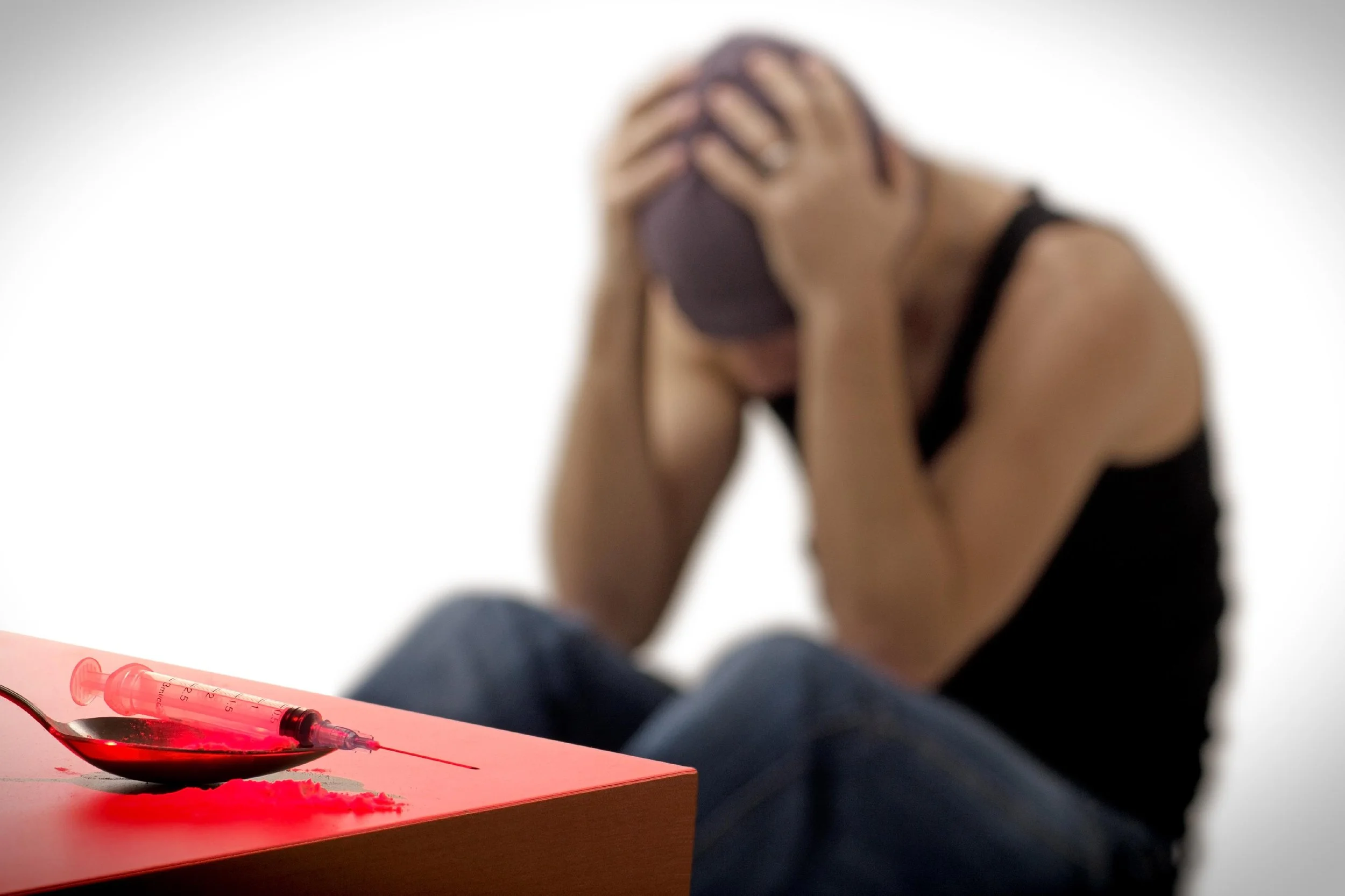What Happens If You Ignore a Bipolar Person? Risks & Effects
Addressing mental health issues is crucial for maintaining overall well-being.
However, many people underestimate the importance of recognizing and treating conditions like bipolar disorder.
What happens if you ignore a bipolar person?
Ignoring a person with bipolar disorder can exacerbate their symptoms, strain relationships, increase their isolation, and potentially lead to dangerous behaviors. It may worsen their mental and physical health, and delay necessary treatment.
Key Takeaways:
Ignoring a person with bipolar disorder can worsen their symptoms.
It may lead to relationship breakdown and increased isolation.
The individual's mental and physical health can deteriorate.
The risk of self-harm and substance abuse may increase.
Providing support and encouraging treatment is crucial.
Understanding Bipolar Disorder
Bipolar disorder is a mental health condition characterized by extreme mood swings.
These mood swings can range from manic highs to depressive lows.
Bipolar disorder affects millions of individuals worldwide, significantly impacting daily life and relationships.
The Consequences of Ignoring Bipolar Disorder
Ignoring bipolar disorder can lead to severe consequences.
This can affect not only the individual suffering from the condition but also their loved ones.
The prevalence of bipolar disorder is higher than many realize, making it essential to understand the risks associated with neglecting this condition.
The Risks of Untreated Bipolar Disorder
When left untreated, bipolar disorder can exacerbate symptoms.
This leads to more frequent and intense episodes.
The results can include a decline in mental and physical health, strained relationships, and even dangerous behaviors.
Understanding the potential outcomes of ignoring bipolar disorder can help encourage timely intervention and support.
Mental and Emotional Consequences
Deterioration of Mental Health
Ignoring bipolar disorder can lead to a significant decline in mental health.
One of the most immediate consequences is the increased severity of symptoms.
When left untreated, the mood swings associated with bipolar disorder can become more frequent and intense.
This makes it increasingly difficult for individuals to manage their daily lives, leading to a downward spiral in their own mental health.
Risk of Co-Occurring Disorders
Neglecting bipolar disorder also raises the potential for co-occurring disorders.
Conditions such as anxiety, substance abuse, and other mood disorders can develop or worsen.
The presence of these additional disorders complicates the treatment process and makes recovery more challenging.
Impact on Quality of Life
The compounded effect of multiple mental health issues can severely impact an individual's quality of life.
This makes it imperative to address bipolar disorder promptly.
Emotional Instability
Emotional instability is a significant consequence of ignoring bipolar disorder.
Individuals with untreated bipolar disorder often experience frequent and intense mood swings.
These mood swings can range from manic highs to depressive lows, making them unpredictable and difficult to manage.
Impact on Relationships and Daily Life
The unpredictability of these mood swings makes it challenging for individuals to maintain stable relationships, especially when bipolar disorder ignores healthy boundaries.
It also hampers their ability to perform daily tasks effectively, often requiring the support of mental health professionals to manage symptoms.
The emotional exhaustion and burnout that result from constant mood fluctuations can be overwhelming, making it difficult to sustain a healthy relationship.
This is particularly true when bipolar pushes loved ones away during manic or depressive episodes, further straining interpersonal connections.
If you are currently having issues with a bipolar narcissist, I have discussed here how you can divorce a narcissist with bipolar disorder.
Ongoing Emotional Turmoil
Individuals may find themselves in a perpetual state of emotional turmoil, struggling to find balance and peace.
This instability can lead to feelings of frustration, hopelessness, and despair, which further exacerbate the symptoms of bipolar disorder.
Impact on Self-Esteem
The impact of ignoring bipolar disorder on self-esteem cannot be overstated.
Individuals with untreated bipolar disorder often experience feelings of helplessness and a decreased sense of self-worth.
The inability to control their mood swings, along with the resulting consequences, can lead to a negative self-image and a lack of confidence.
Feelings of Helplessness
Feelings of helplessness can arise from the perception that one has no control over their mental state.
This can lead to a sense of defeat and resignation, making it difficult for individuals to seek help or believe in the possibility of recovery.
Effects on Life and Relationships
A decreased sense of self-worth can affect various aspects of life, including personal relationships, career prospects, and overall life satisfaction.
The Importance of Addressing Bipolar Disorder
The mental and emotional consequences of ignoring bipolar disorder are profound and far-reaching.
The deterioration of mental health, emotional instability, and impact on self-esteem highlight the importance of addressing this condition promptly.
By understanding these consequences, individuals and their loved ones can take proactive steps to seek appropriate treatment and support, ultimately improving their quality of life.
Impact on Relationships
Strained Personal Relationships
One of the most significant consequences of ignoring bipolar disorder is the strain it places on personal relationships.
Misunderstandings and conflicts often arise when the symptoms of bipolar disorder go unaddressed.
Loved ones may struggle to comprehend the erratic behavior, mood swings, and emotional outbursts that characterize the condition.
Breakdown in Communication
This lack of understanding can lead to frequent arguments and a breakdown in communication.
Maintaining healthy relationships becomes increasingly difficult under these circumstances.
Loss of Trust and Intimacy
The loss of trust and intimacy is another critical issue.
When bipolar disorder is left untreated, the unpredictability of mood swings can erode the foundation of trust in a relationship.
Partners, family members, and friends may feel as though they are walking on eggshells, unsure of how to support their loved ones.
Emotional Distance and Isolation
This can create a sense of emotional distance, further isolating the individual with bipolar disorder.
As a result, feelings of loneliness and despair are often exacerbated.
Professional Consequences
Impact on Professional Life
The effects of neglecting bipolar symptoms extend beyond personal relationships and can significantly impact professional life.
Decreased Job Performance
Decreased job performance is a common outcome for individuals with untreated bipolar disorder.
Frequent mood swings and emotional instability make it challenging to concentrate, meet deadlines, and maintain productivity.
This often leads to a decline in work quality and overall job satisfaction.
Risk of Job Loss or Stagnation
Job loss or stagnation is another potential consequence.
The inability to manage bipolar symptoms effectively can result in frequent absences, missed deadlines, and conflicts with colleagues or supervisors.
Over time, this jeopardizes job security and limits career advancement opportunities.
Financial Stress and Diminished Self-Worth
The professional repercussions of untreated bipolar disorder can create financial stress.
This, in turn, further diminishes an individual's sense of self-worth and accomplishment.
Social Isolation
Risk of Social Isolation
Social isolation is a significant risk for individuals who ignore bipolar disorder.
Withdrawal from Social Activities
Withdrawal from social activities is a common coping mechanism for those struggling with untreated symptoms.
The fear of judgment, embarrassment, or misunderstanding often leads individuals to avoid social interactions altogether.
This withdrawal can result in a diminished social life and a lack of meaningful connections.
Reduced Support Networks
Reduced support networks are another consequence of social isolation.
When individuals with bipolar disorder distance themselves from friends and family, they lose valuable sources of emotional support and encouragement.
This isolation can create a vicious cycle, where the lack of support exacerbates symptoms, leading to further withdrawal and isolation.
Challenges in Seeking Help
The absence of a robust support network makes it even more challenging to seek help and manage the condition effectively.
Conclusion: Far-Reaching Effects on Relationships
The impact of ignoring bipolar disorder on relationships is profound and multifaceted.
Strained personal relationships, professional consequences, and social isolation highlight the far-reaching effects of neglecting this condition.
By understanding these impacts, individuals and their loved ones can take proactive steps to address bipolar disorder, fostering healthier relationships and a more supportive environment.
Physical Health Implications
Neglected Physical Health
One of the most alarming consequences of ignoring bipolar disorder is the neglect of physical health.
Poor Self-Care and Hygiene
Individuals struggling with untreated bipolar disorder often experience poor self-care and hygiene.
The overwhelming nature of their mental health symptoms can make it difficult to maintain daily routines.
This includes basic self-care tasks such as bathing, eating balanced meals, and exercising.
As a result, this neglect can lead to a decline in overall physical health, compounding the challenges they already face.
Increased Risk of Substance Abuse
Another significant concern is the increased risk of substance abuse.
Many individuals with untreated bipolar disorder turn to drugs or alcohol as a coping mechanism to manage their symptoms.
While substance abuse may provide temporary relief, it ultimately exacerbates the condition.
This leads to a vicious cycle of dependency and deteriorating health.
Dangerous Health Complications
The combination of bipolar disorder and substance abuse can be particularly dangerous.
It increases the risk of severe health complications and makes treatment more complex.
Increased Risk of Physical Illnesses
The effects of neglecting bipolar symptoms extend to an increased risk of physical illnesses.
Prevalence of Chronic Conditions
Chronic conditions, like heart disease, are more prevalent among individuals with untreated bipolar disorder.
The stress and emotional turmoil associated with bipolar disorder can lead to unhealthy lifestyle choices.
These choices include poor diet, lack of exercise, and smoking, all of which contribute to the development of chronic illnesses.
Impact on Cardiovascular Health
Additionally, the physiological impact of chronic stress can directly affect cardiovascular health.
This increases the risk of heart disease.
Weakened Immune System
A weakened immune system is another consequence of untreated bipolar disorder.
Constant emotional and psychological stress can impair the body's immune response.
As a result, individuals become more susceptible to infections and illnesses.
This weakened immune system can lead to frequent illnesses, longer recovery times, and a general decline in physical well-being.
Importance of Comprehensive Care
The interplay between mental and physical health underscores the importance of addressing bipolar disorder comprehensively.
Risk of Self-Harm and Suicidal Behavior
Increased Risk of Self-Harm and Suicidal Behavior
One of the most severe risks of ignoring bipolar disorder is the increased likelihood of self-harm and suicidal behavior.
Heightened Suicidal Thoughts
Individuals with untreated bipolar disorder often experience heightened suicidal thoughts, particularly during depressive episodes.
The overwhelming sense of hopelessness and despair can lead to a preoccupation with self-harm as a way to cope with emotional pain.
This risk is especially pronounced when someone with bipolar disorder ignores texts or calls from loved ones, isolating themselves further.
During a manic episode, the person may feel invincible and engage in risky behaviors, while a subsequent depressive episode can bring a crushing low, intensifying suicidal ideation.
It's crucial for those supporting someone with bipolar disorder to recognize these shifts in mood and behavior, as they can signal a need for immediate intervention.
Risk of Suicide Attempts
The potential for suicide attempts is a grave concern.
The impulsivity associated with manic episodes, combined with the deep despair of depressive episodes, creates a dangerous environment.
In this state, individuals may act on suicidal thoughts.
Importance of Immediate Intervention
The consequences of untreated bipolar disorder in this context can be fatal.
This makes it imperative to seek immediate intervention and support.
Summary: Physical Health Implications
In summary, the physical health implications of ignoring bipolar disorder are extensive and severe.
Neglected physical health, increased risk of physical illnesses, and the risk of self-harm and suicidal behavior highlight the critical need for timely and effective treatment.
By understanding these physical health risks, individuals and their support networks can take proactive steps to address bipolar disorder.
This approach ultimately improves both mental and physical well-being.
Frequently Asked Questions:
1. What are the potential consequences of ignoring bipolar disorder?
Ignoring bipolar disorder can lead to more frequent and intense episodes, a decline in mental and physical health, strained relationships, and dangerous behaviors.
2. How does untreated bipolar disorder affect physical health?
Untreated bipolar disorder can result in poor self-care, increased risk of substance abuse, and chronic illnesses like heart disease, as well as a weakened immune system.
3. What is the risk of self-harm for individuals with untreated bipolar disorder?
Individuals with untreated bipolar disorder are at a heightened risk of self-harm and suicidal behavior, particularly during depressive episodes, and may act on suicidal thoughts due to the combination of impulsivity and deep despair.
Conclusion
Addressing bipolar disorder is crucial for overall well-being and preventing severe consequences.
Ignoring the condition can lead to worsened symptoms, strained relationships, and significant physical health issues.
Timely intervention and understanding are essential to improve mental and physical health and foster supportive environments.




